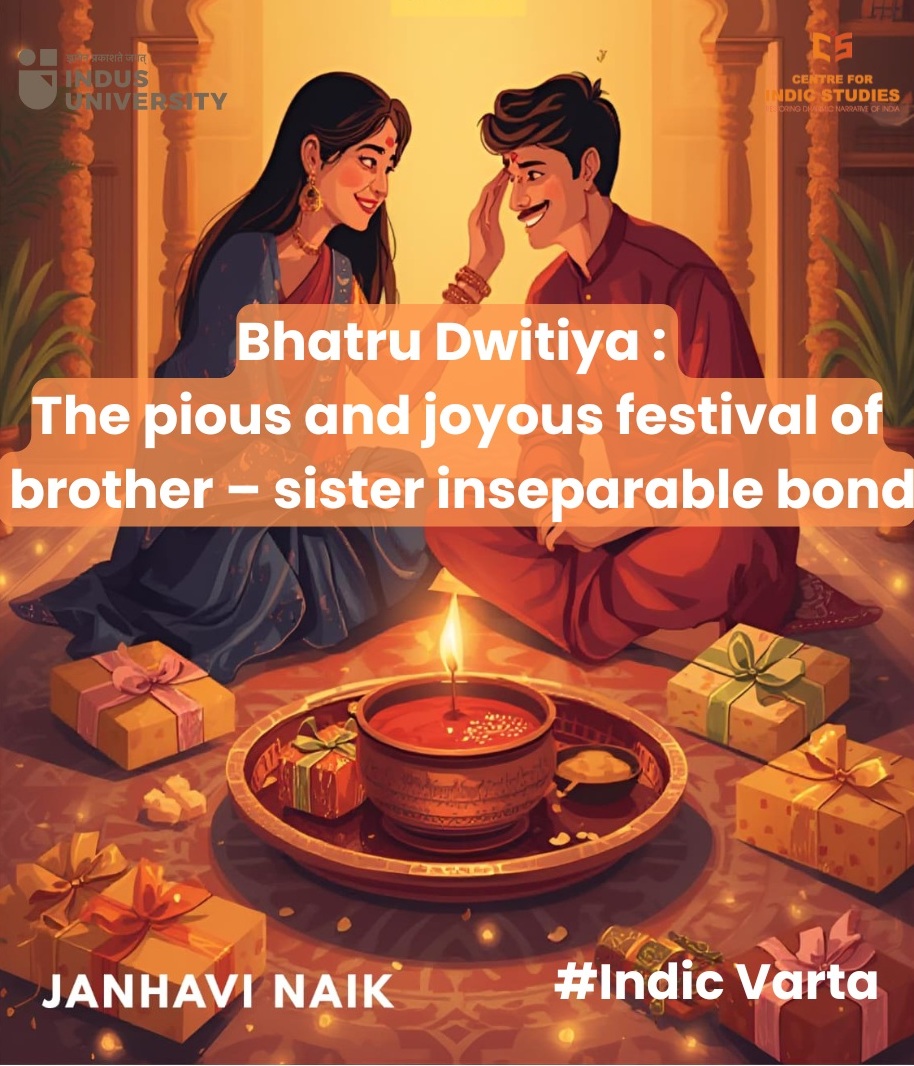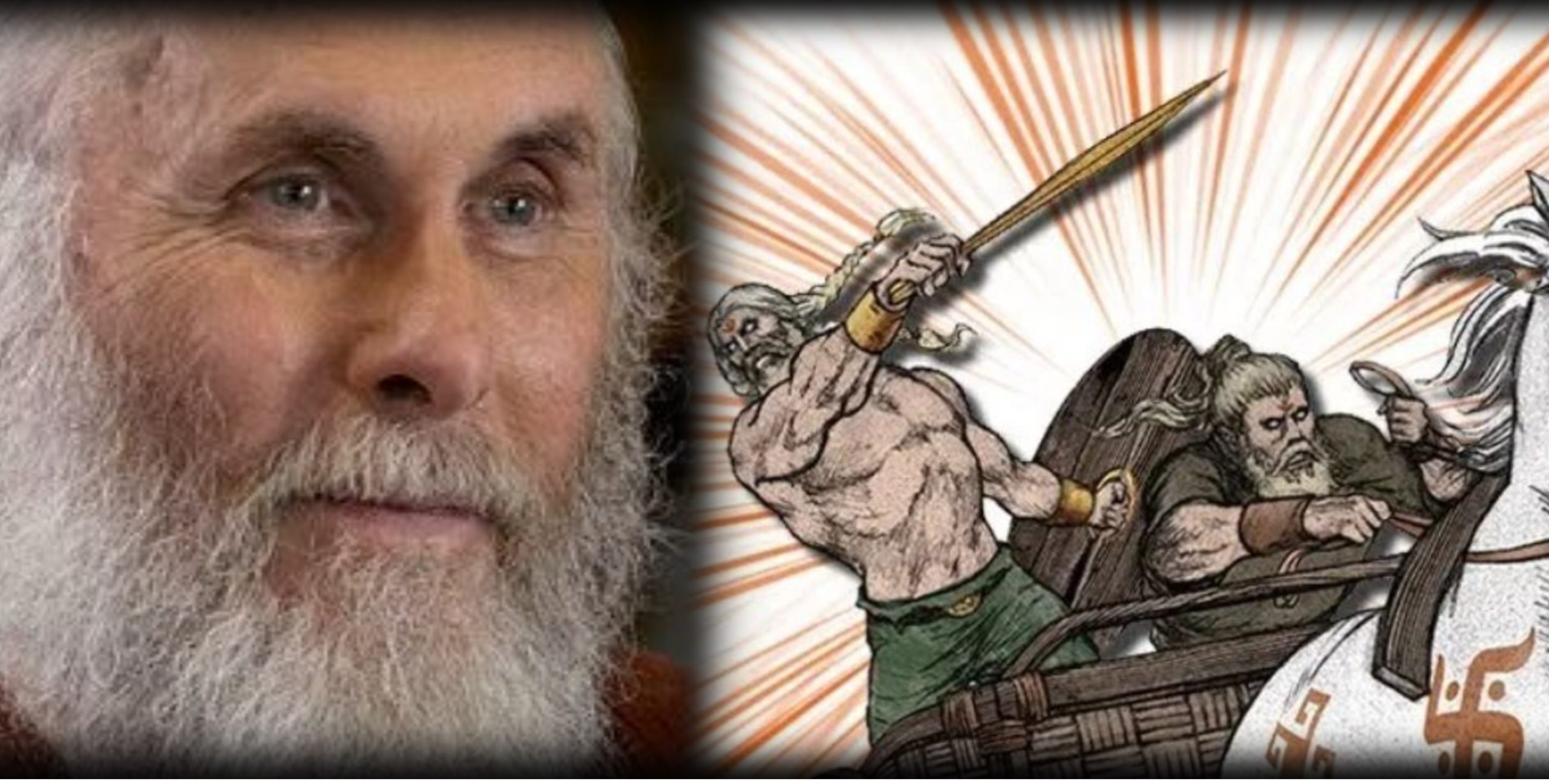- Visitor:36
- Published on:
Importance given to handing over of Charities in Hindu Wisdom Text (C20_Indic Wisdom Series_Sustainable Lifestyle)
The Hindus have always regarded the act of giving as a noble Karma without any expectation of phala or “return or reward”. This is also a path for enlightening the soul inside, in this due process. Hence, the Hindu way of charity can be considered to be the greatest virtue of humanity. The following Chapter titled “Giving away of Charities” from the Kurma Mahapurana deals with contributing towards spreading light to the needy, making life better and coming close to other souls by the dint of charity

- The Hindus have always regarded the act of giving as a noble Karma without any expectation of phala or “return or reward”. This is also a path for enlightening the soul inside, in this due process. Hence, the Hindu way of charity can be considered to be the greatest virtue of humanity. The following Chapter titled “Giving away of Charities” from the Kurma Mahapurana deals with contributing towards spreading light to the needy, making life better and coming close to other souls by the dint of charity.
Vyasa said, “Now I shall speak about the excellent dharma of the charities as had been extolled by Brahma to the sages, well-versed in understanding Brahman.
When the riches are given to an appropriate person with faith, only then they are treated as Dana (charitable gift). These charities yields pleasures as well the Moksa.
A person who gives away his riches in charities to a distinguished person with devotion, it is considered to be the true wealth. The rest of the riches are guarded by a person for the sake of others.
The charities are of three types, those which are given always, casual and those given with a definite aim. The fourth type of charities are considered to be the spotless one, which indeed is the best in comparison to all other charities.
When a donor, without the desire for a reward in return gives away charities to one, who is unable to repay the kindness, it is called the nitya charity.
The charities which are given in the hands of the learned persons, for the sake of self-control, it is called the naimittika charity, and it is practiced by the noble people.
The charity which is performed for getting progeny, victory, fortunes, or the heaven, has been termed as Kamyadana by the Rsis who have pondered over topics of piety.
The charity which is given to the one, well-versed in the Brahman, for the Propitiation of Isvara, with a righteous mind, such a type of charity is known by the name of Vimala or spotless one.
The charities should be given according to one’s own means, on finding an appropriate person, because such an appropriate person can be found with difficulty, who could enable the donor to cross the entire ocean of worldly existence.
What remains after providing food, clothing etc. to the family should be given as charitable gift; because the charities given otherwise are of no consequence.
A person with due devotion should give away in charity riches to the one, well-versed in the Vedas, who are of spotless race, humble, performers of tapas, Brahmacarins, and who maintains holy rites.
A person, who donates land to Brahmana – the performer of homa, he reaches the supreme place, where one does not have to face any type of sufferings.
A person, who, denotes the land with the crop of sugarcane, barley, or wheat, to a Brahmana, well-versed in the Vedas, he is relieved of all the sins.
A person who gives away land of the size of a cow hide, to a poor Brahmana, he is relieved of all the sins, because there is no charity better than the donation of the land. But donation of cooked food is also equivalent to the donation of land. And the gift of learning is most excellent.
A person, who appropriately donates Vidya or learning to a religious-minded Brahmana of excellent character, he is adorned in Brahmaloka.
Aa person who gives away in charity with devotion, the food to a Brahmacarin Brahmana, he, getting relieved of all the sins, proceeds on to Brahmaloka.
A man obtains great benefit by giving cooked food to a Brahmana. It must be given to him immediately on his arrival. Thus, one obtains the greatest goal.

On the full moon day of the month of Vaisakha, observing the fast, with a peaceful mind, performing purity, concentrating his mind, a person should adore five or seven Brahmanas offering honey and black sasamum.
Then, he should perform their arati offering fragrant material to them and should say, “you be pleased, O Dharma raja”. After speaking these words, he should also speak out his desire to them or he can request the Brahmanas to speak it out. By so doing all the sins during the entire life are washed out.
A person, who placing the gold, honey, ghee, gingelly seeds, on the black antelope skin, and gives them in charity to a Brahmana, he is relieved of all the sins.
During the month of Vaisakha, in case the cooked food and a vase filled with water is given to a Brahmana, for the sake of Dharma raja, a person is freed from fear.
A person is relieved of the sin of Brahmahatya by giving away in charity gold, sasamum, and a vase filled with water, and propitiating five or seven Brahmanas.
One should perform fast on twelfth dark day of the month of Magha, wearing the white clothes and should perform homa is fire with sasamum seeds. With great concentration, he should offer gifts to the Brahmanas, well-versed in the Vedas, and by so doing one is relieved of all the sins performed during the life.
On the new moon day, whatever charities are given to a Brahmana, for the sake of lord Siva saying, “Let Lord Shiva with Uma, be pleased”, the sins committed by a person in the seven births are washed out, in a moment.
When a person on the fourteenth day of the dark fortnight, taking his bath, adores the Pinaka-bearing lord Siva, and serves food to a educated man, he is freed from the cycle of rebirth.
When a person, taking bath on the eighth day in the dark half of the month, washing the feet of the Brahmanas, adores them appropriately and says, “Let Lord Siva be pleased with me”, and then offers his own wealth in donation, he, getting relieved of all the sins, achieves the highest position.
On the eighth and fourteenth days of the dark fortnight besides on the new moon day, the devotion Brahmanas should specially adore lord Siva.
Similarly, observing fast on the eleventh day, lord Visnu-the Purushottama should be adored through a Brahmana on the twelfth day. By so doing, one achieves the best position.
The twelfth day of the bright fortnight happens to be the day belonging to Visnu. Therefore, on this particular day, lord Visnu should be adored making all the efforts.
Thus, by inviting lord Isana in any form and when a Brahmana is given charities in the name of Lord Vishnu, it becomes exceedingly rewarding.
A person who intends to serve his own deity, such an intelligent person should adore the Brahmanas for the pleasure of that deity.
All the gods live in the bodies of the Brahmanas always. At times when the Brahmanas are not available then the images of the gods are worshipped.
Therefore, the people desirous of quick reward, should adore the deities in Brahmanas.
A person desirous of fortunes should always adore Indra, and the person desirous of Brahman, or the knowledge of the Vedas should adore Brahma.
Similarly, the one who is desirous of good health, should adore Surya, one who is desirous of the cows, should adore Agni, and for the achieving of success in all the matters, one should adore Vinayaka.
One who is desirous of worldly pleasures, should adore the moon, one desirous of strength, should adore the wind-god and the one who is desirous of his salvation from the world, should adore lord Visnu, making all the efforts.
But those who are desirous of Yoga, liberation, the divine knowledge of Isvara, they should worship Virupaksa-Mahesvara, making all the efforts.
Such of the people, who are interested in great Yoga and perfect knowledge, should adore lord Mahadeva. They shall become enjoyers of pleasures, they who worship Bhutesa and Kesava.
By donating water freely, one achieves satisfaction; with the donation of cooked food, one gets everlasting happiness; by donating of sasamum, one gets desired progeny; and by donating lamp, one gets the best of eyesight.
A person who donates land, he gets everything; one gets long life by donating gold; by donating a house, one gets the best of abodes; and by donating silver, one achieves the excellent beauty.
By donating the costumes, one lives in the place of moon; by donating the horse, one attains the same world as that of the Asvins; by donating a bull one gets enormous glory and riches, and by donating a cow, one achieves Bradhna (the world of sun).
By donating a vehicle or a bed, one gets a beautiful wife. When a person offers relief from fear, he achievs enormous fortunes. By donating food grains, one achieves the everlasting comforts, and with the donation of the Vedas, one achieves union with Brahman.
When a person, as per his own means donates food-grains to the Brahmanas well-versed in the Vedas, he enjoys all the comforts in the heaven after his death.
With the donation of the cows, a person is relieved of all the sins. With the donation of fuel, a man becomes like a brazing fire.
A person who donates the fruits, roots, vegetables and several types of eatables to the learned man, he achieves everlasting happiness.
A person, who gives away to the ailing person, the medicines, oil, and the food mixed with ghee, he becomes healthy, happy and enjoys long life.
A person who donates an umbrella and the shoes, he easily crosses the Asipatravana hell full of sharp edges like a shawing blade, and surmounts severe scorching pain.
Whatever is dear in this world, or whatever is excessively cherished by one in the house, should be given to a learned man, by one who desires the same for himself to be inexhaustible.
The articles donated during the time of Ayana, or when the day and night are equal, at the time of solar or lunar eclipse, or on the first day of the month, bestow everlasting reward.
The charities given to a suitable person at Prayaga or other holy places, auspicious temple, over the bank of a river or a tank, bestow the everlasting reward.
There is no other dharma in the world better than the giving of the charities. Therefore, the twice-borns should donates to the wise men well-versed in the Vedas.
A person desirous of the heaven, long life, the destruction of the sins, fortunes and the one engaged in search of salvation, should perform charities for the Brahmanas.
The one who prevents others from giving charities, to wise men, the fire and the gods, out of delusion, such a sinful fellow, after his death is born as an animal.
A person, who, after earning enough of riches, does not adore the gods or the learned men, then the king should exile him, snatching away all his riches.
A person who does not distribute the food etc. to the people starving due to the famine, such a Brahmana always earns denouncement.
The giving and taking of donations to such a person is prohibited. Such people driven out from the kingdom, after suitably stamping him.
A person who does not give charities to the noble persons, for the following of the dharma, he shall be considered to be a great sinner and shall be cooked in the hell.
O Best of the Brahmanas, such of the Brahmanas who are engaged in the study of the Vedas, are learned ones, having controlled their senses, are truthful, righteous, and disciplined, the donations should be given to them alone. One should not feed a fool who has no good conduct even if he is starving for ten days.
A person who leaving aside a Brahmana, well-versed in the Vedas, living close by, gives charities to someone else, such a sinful fellow, by his misdeeds, reduces to ashes his seven generations.
In case a Brahmana living at a distance excels in learning and virtues, then the charities can be given to the Brahmana living at a distance, in preference to the one living in the vicinity.
Therefore, one who receives the charities and one who gives the charities with due respect, both of them go to the heaven and in case things are otherwise, both of them achieve the hell.
Therefore, for the person well-versed in the Dharma, he should not extend the charities to an atheist, one who practices falsehood, one who indulges in arguments, wicked and one who is devoid of the knowledge of the Vedas. Even the water should not be given to such a person.
In case an ignorant person, accepts the gifts of pies, gold, cow, horse, land, sasamum, then he is reduced to ashes like the log of wood.
An excellent Brahmana should expect charities only from high class praise-worthy Brahmanas or from all twice born people, but charities should not be accepted from a Sudra.
Every Brahmana should try for diminution of his expenditure for livelihood. He should never desire for the expansion of riches, because in greed for riches, he falls off from Brahman hood.
After studying all the Vedas, and after performing all the 11 Yajnas, a person cannot attain that goal, which one attains by means of diminution.
One should not be eager to receive donation. One should earn riches for carrying on his livelihood. A Brahmana, who amasses the wealth much more than his actual need, has to face his ultimate downfall.
A person who perpetually begs, can never achieve the heaven. He actually, annoys all other people like a thief.
The charities are collected from the people of all the Varnas for the uplifting of the preceptors, elders, servants, besides for worshipping deities and the guests. But one should not make use of the same for his selfish purpose.
Thus a householder, who adores the guests as well as the gods and leads his life absorbed in meditation, he achieves the highest position.
Or otherwise leaving everything on the son, a person well-versed in the Tattvas, retiring himself in the forest, becoming unattached, and concentrating his mind in spiritual activities, should wander alone.
O Best of the Dvijas, I have explained to you all about the duties of a householder. Understanding them well, you should strictly follow them and discourse to the other Brahmanas to follow the same.
Thus according to the duties of a householder, the one who adores the primordial lord Isana, he overcoming the supreme Prakrti, the source of origin of all living beings, does not take another birth.
Center for Indic Studies is now on Telegram. For regular updates on Indic Varta, Indic Talks and Indic Courses at CIS, please subscribe to our telegram channel !
- 18 min read
- 0
- 0










